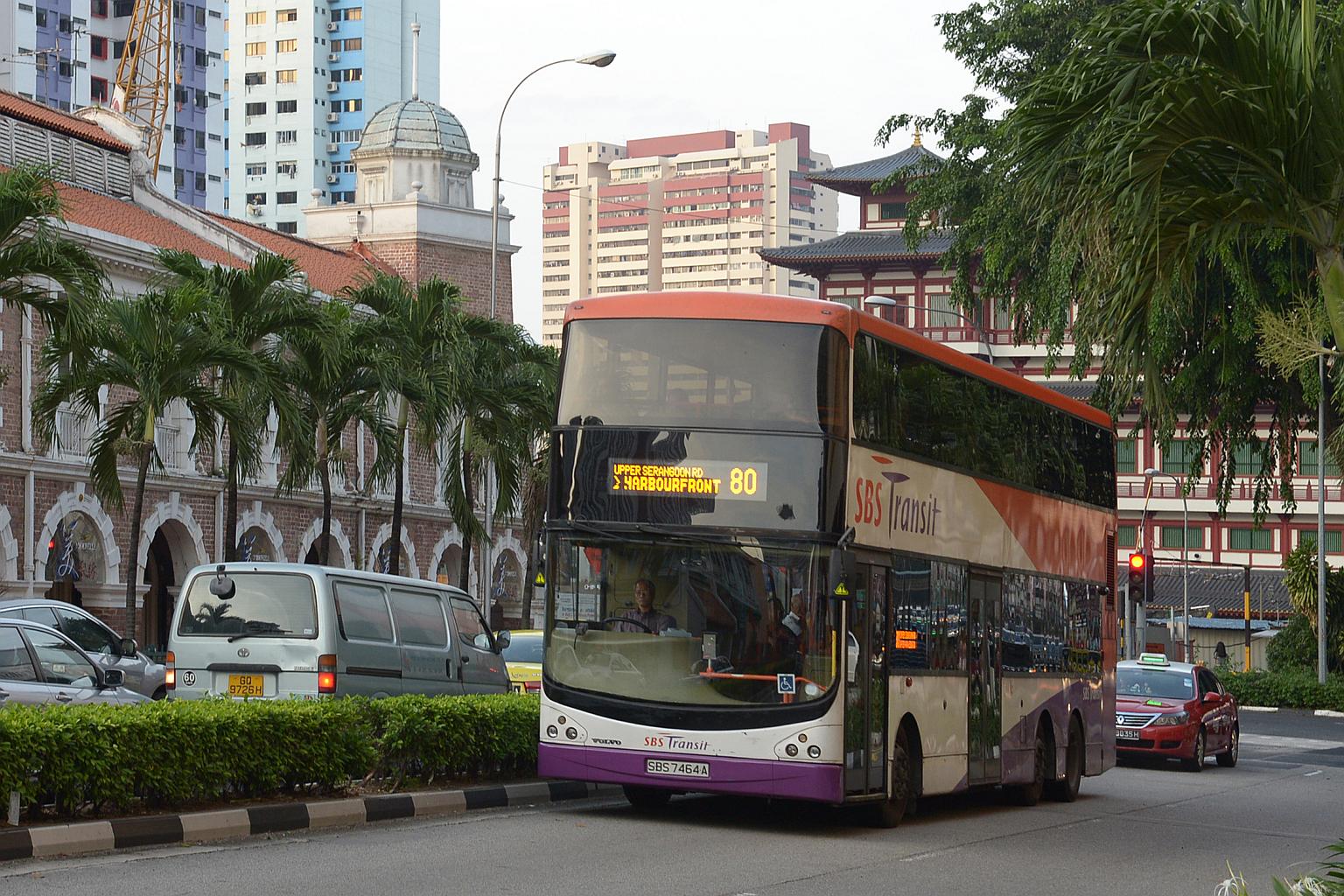Significant changes made, say transport experts
Sign up now: Get ST's newsletters delivered to your inbox

A double decker bus travelling along Tanjong Pagar road.
ST PHOTO: DESMOND WEE
In the minds of many people, Mr Lui Tuck Yew's tenure as Transport Minister may be marred by crippling rail disruptions, the latest being on July 7 when two heavily used MRT lines broke down during the evening peak hours.
But experts say he has introduced significant changes to Singapore's public and private transport and were surprised by yesterday's announcement that he will leave politics.
National University of Singapore transport researcher Lee Der Horng said that steps have been taken to boost MRT reliability under Mr Lui's watch and new train systems, like the Downtown Line (DTL) 1, have been launched successfully, with others in the pipeline such as the DTL 2, which will start running in December.
Meanwhile, the $1.1 billion Bus Service Enhancement Programme (BSEP) was introduced in 2012, in which the Government partners operators to increase capacity and boost service levels, said transport consultant Gopinath Menon.
"To me, that really stands out. There are now more bus services and that has helped to reduce crowding," Mr Menon added.
About 620 new buses have been put on the road under the BSEP, with 380 more to come by 2017.
A "dramatic change" to the bus industry was also made with the move to a government contracting model, Dr Lee said. Under it, the Government will own all bus infrastructure and assets, with the routes tendered out to operators.
The first package of 26 routes in the western part of Singapore was awarded to London-based Tower Transit in May.
In the realm of private transport, Dr Lee said tweaks have been made to the certificate of entitlement (COE) system, such as the introduction of a criterion based on engine power, to create more social equity in car ownership.
This helps ensure mass-market car buyers are in one COE category and premium buyers, in another.
The carbon emissions-based vehicle scheme was also refined, Dr Lee said, which will push buyers towards cleaner vehicles.
Experts admitted the transport portfolio is a difficult one. This will change, they said, as the Government expands its role beyond that of a regulator and takes greater control of the public transport system.
The bus industry is moving to a contracting model, and the DTL has adopted a new financing model in which the Government owns the operating assets, thus giving it more control.
Policy changes made in transportation also take time to bear fruit, one political observer noted.
Law don and former Nominated MP Eugene Tan said: "Transport issues don't resolve themselves in the life of one parliamentary term. Very often, the public may make fairly quick judgments about how effective a minister is just through one electoral cycle."


